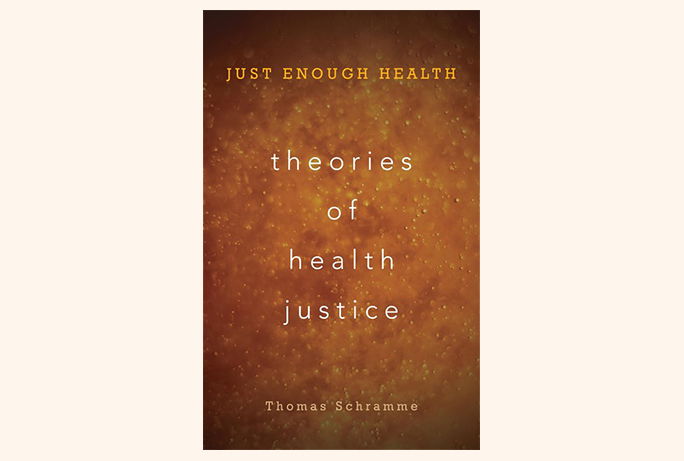Featured Research: Theories of Health Justice: Just Enough Health

By Thomas Schramme
This textbook has been long in the making and I'm very pleased it has now been published. It is of course a common feature of academic life that larger projects are being pushed back to free up time for urgent and short-term tasks, such as marking or writing references and reports. In writing this book, I could rely on my longstanding interest and extended research on the concepts of health and disease, as well as on theories of justice. It was a nice experience to be able to combine these two aspects of my expertise. Fairly often, I feel almost like leading separate philosophical lives because of my various philosophical interests. At last, I could link them to the benefit of a research output.
I believe it is very important, when discussing health justice, to have a solid conceptual foundation. As is well known, the basic medical concepts, health and disease, are far from clear. Indeed, I believe a lot of quarrels regarding the just allocation of health care resources stem from such conceptual confusion. Consider, for instance, the discussion whether we should fund in-vitro fertilisation. The first question to ask here is whether being unable to conceive a child is a disease and, if so, in which cases. If a woman suffers from an ovulation disorder, we might agree that this is a form of biological dysfunction and hence pathological. Being homosexual, in contrast, is not a disease and hence we have a reason not to fund IVF for homosexual couples – at least we don't have a reason that would be based on the assumption of treating a disease. However, issues of justice do not end at classifying conditions as diseases or normal conditions. If a homosexual woman has an ovulation disorder, she would seem to have a claim for being offered IVF. To exclude her on the basis of her sexual preferences clearly seems to be a case of discrimination against her. So conceptual clarity helps but does not alone solve normative problems. (A familiar statement in philosophy, I suppose.)
I'm looking forward to teaching several aspects of this book in my newly devised third year module PHIL366 Health Care, Economics and Justice, which starts next academic year. If you are interested in the topic, our library offers access to the electronic version of the study – although I'd prefer you buy a copy! I have also written a blog entry, based on a chapter of the book, for the publisher's website.